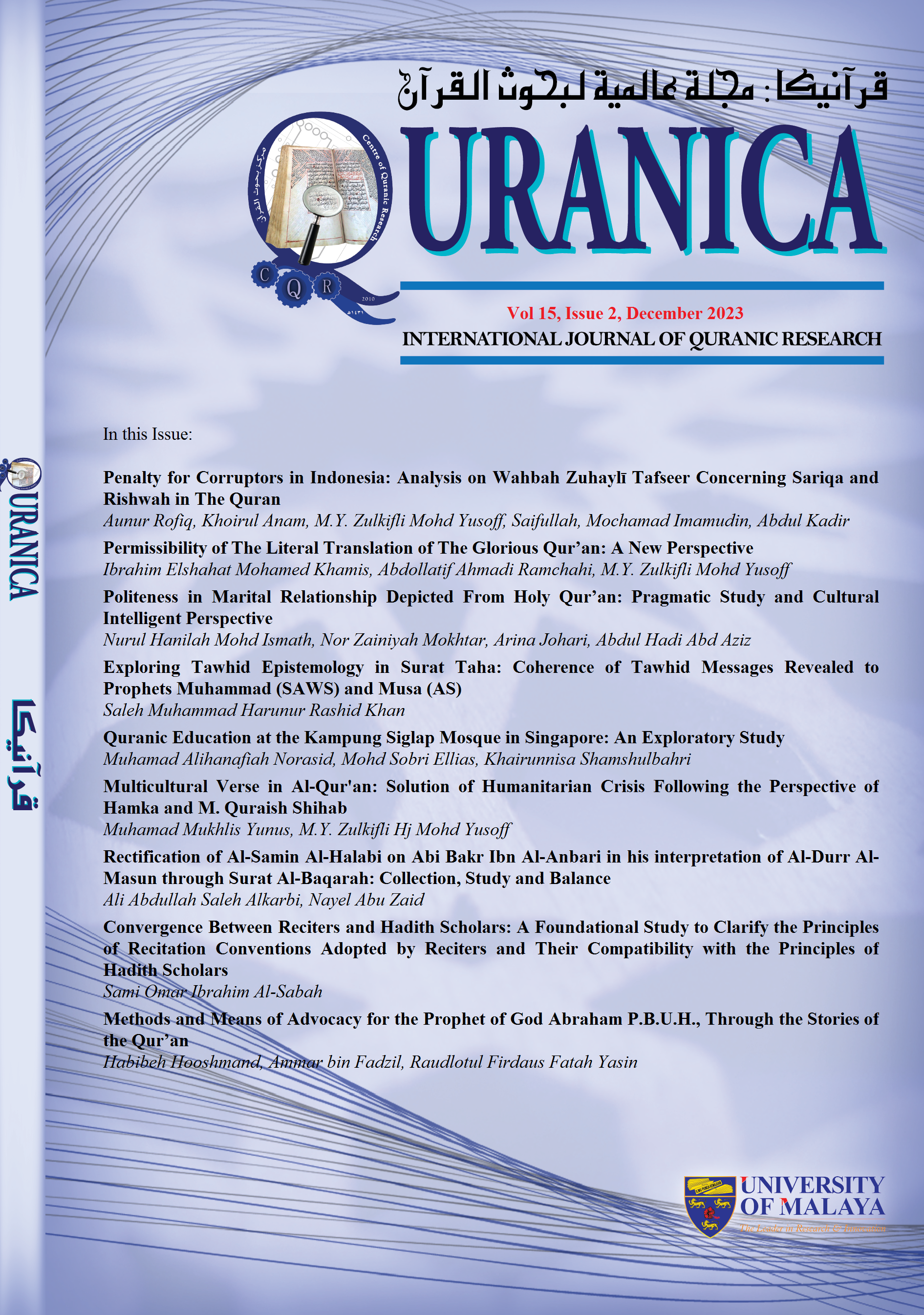Permissibility of The Literal Translation of The Glorious Qur’an: A New Perspective
Main Article Content
Abstract
The issue of translating the Quran from a legal perspective is not a single issue, but rather a complex mix of issues that vary in views and perceptions, and thus the resulting judgments differ. Despite the recent stability of the legal view on the general permissibility of translating the Quran, there is still much disagreement among translation specialists and Sharia scholars who have written on the issue regarding some translation-related issues. This paper aims to dismantle the roots of the differences regarding the rules of translating the Quran by looking at the methods and techniques of translation that are commonly accepted among specialists, and exploring the possibility of translating the Quran as well as the historical contexts that have significantly influenced the scholars' orientations in questioning the rulings of permissibility and prohibition on Quran translations in general, and reaching their approval with known guidelines. The paper also aims to resolve the conflict between the perceptions of translation specialists and Sharia scholars regarding the nature of literal translation by analyzing texts from both sides. The paper concludes that the literal translation commonly accepted among Sharia scholars is entirely different from the literal translation, which is one of the most important translation methods alongside the semantic translation, and that literal translation of the Quran may be permissible from a technical perspective of translation methods while adhering to known guidelines. The paper also concludes that the literal translation intended by Sharia scholars is referred to among translation specialists as "interlinear translation," and that the ruling standard for the permissibility and prohibition of Quran translation is based on specific criteria that differ from the translation methods terminology used among translators. Semantic translation, which is commonly agreed upon, may be prohibited if these criteria are violated.
Downloads
Article Details
Disclaimer
QURANICA makes every effort to ensure the accuracy of all its contents. However, opinions, discussions, views and recommendations are expressed in this journal do not necessarily reflect the official policy of QURANICA or views of its editors or publishers. Therefore, QURANICA and its publishers will not be liable for any controversy may be arisen. The journal reserves the right, at its sole discretion, to change its terms and conditions of publications.
Copyright
It is a condition of publication that manuscript submitted to the journal have not been published, accepted for publication, nor simultaneously submitted for publication elsewhere. By submitting a manuscript, the author(s) agrees that copyright for the article is transferred to the publisher, if and when the manuscript is accepted for publication.
